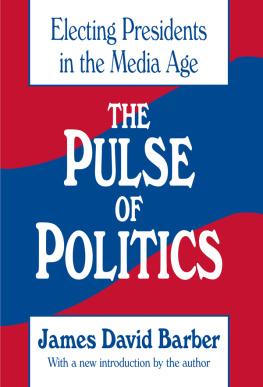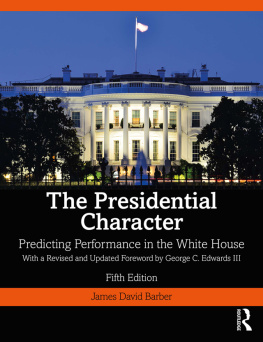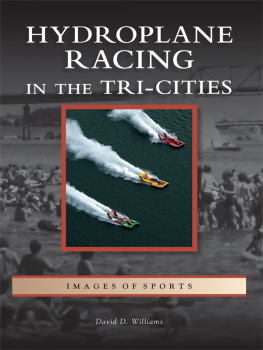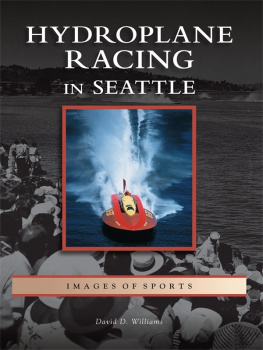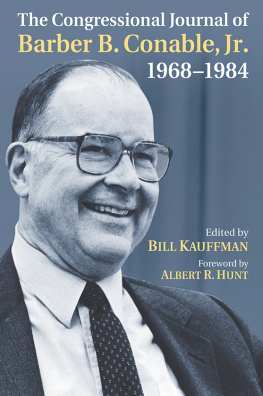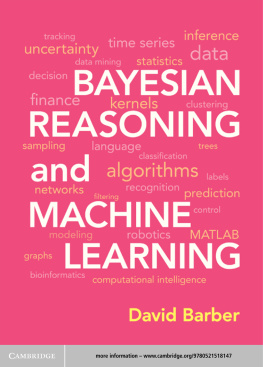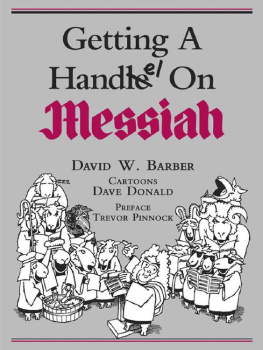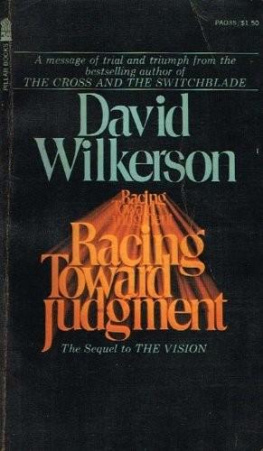First published 1968 by Transaction Publishers
Published 2017 by Routledge
2 Park Square, Milton Park, Abingdon, Oxon OX 14 4RN
711 Third Avenue, New York, NY 10017, USA
Routledge is an imprint of the Taylor & Francis Group, an informa business
New material this edition copyright 2005 by Taylor & Francis
Copyright 1968 by Marvin B. Scott.
All rights reserved. No part of this book may be reprinted or reproduced or utilised in any form or by any electronic, mechanical, or other means, now known or hereafter invented, including photocopying and recording, or in any information storage or retrieval system, without permission in writing from the publishers.
Notice:
Product or corporate names may be trademarks or registered trademarks, and are used only for identification and explanation without intent to infringe.
Library of Congress Catalog Number: 2005048529
Library of Congress Cataloging-in-Publication Data
Scott, Marvin B.
The racing game / Marvin B. Scott; with a new introduction
by Jaime Suchlicki.
p. cm.
Originally published: Chicago : Aldine Pub. Co., 1968. With
new introd. ISBN 0-202-30809-X (pbk.: alk. paper)
1. Horse racing. 2. Horse racingBetting. I. Title.
SF334.S35 2005
798.4dc22
2005048529
ISBN 13: 978-0-202-30809-6 (pbk)
For My Dad,
Who Introduced Me to
the Social World of Horse Racing
Aldinetransaction
Introduction
And theyre off! The thoroughbreds thunder down the track; the riders jockey for position; the owners breathe anxiously; the public cheers, hoping for a wining ticket.
In a little over a minute much disappointment and some happy faces. This race is over. The next one will start soon. Hope is eternal.
The sport of kings has captivated the imagination of rich and poor alike for centuries. Sea Biscuit showed us all what dreams are made of. A small, wretched, rejected horse became a champion. The faith of an owner and the hard work and expertise of a trainer transformed a loser with heart into a champion for all times. The recent film allowed millions to relive the sad experiences of the Depression, the agony of hopelessness and defeat, and the glory of Sea Biscuit s victories.
This new edition of Marvin Scotts classic, The Racing Game, takes us inside the action. Some two decades of personal, close contact with almost every aspect of horseracing, combined with three years of systematic observation and statistical tabulations, provides the basic data.
The result is an eminently readable, detailed study, a point of departure for anyone interested in horseracing and the people connected with racing.
But this book is more than a casual book on horseracing. It is a sociological analysis of the people involved in this businessthe jockeys, trainers, owners, track personnel, and the betting public. Scott uses game theory to highlight the tension involved in the successes and failures associated with each group.
The Racing Game is above all a study in social organization. Scotts analysis differs from other investigations into horseracing. Other works focus on the history of the sport, its folklore, or the techniques of picking a winner. This book constitutes a study in the organization of information that leads to Scott s major theoretical assumption: the study of social organization is the study of the organization of information.
Information, or disinformation, is at the core of horseracing. Wining is not necessarily the goal of all the performers, all the time. There are times to win and times to lose. Losing increases the betting odds of a horse on a future race and, therefore, brings a better payoff. Either jockeys or trainers, or both, engage in deception. They both control appearances and outcomes. The game is, therefore, usually played in terms of strategies of concealment.
This happens perhaps more often in cheaper, claiming races where the purses are smaller. In better, more expensive races where the purses are larger jockeys and trainers are less likely to manipulate their horses. In these races winning becomes the real objective and deception plays a lesser role.
Scotts chapter on the audience shows that the betting public perceives the race as a natural event, capable of being determined by analysis. The public believes that the various sources of printed information and the data available allow them to make calculated selections that could lead to successful gambling. Scott shows that the manipulation of information makes this more difficult, or at least more challenging.
The Racing Game is a book to be read with interest by the social scientist and with concern by the betting public. Yet this second edition of this fascinating book is an important addition to the literature, a must for anyone interest in horseracing.
Jaime Suchlicki
Emilio Bacardi Moreau Distinguished Professor of History
University of Miami
February 2005
Preface
Heads apart, three glistening thoroughbreds thunder toward the finish line, their riders crouched low with whip arms flailing. As the action on the track reaches its conclusion, the shouting of the fans rises to an ear-splitting crescendo. Driving toward the wire, the three horses are bunched so closely that it is a tossup which will win. To the fans, this is a magnificent struggle of natureflesh and blood and pounding hoofsclearly, nature in the raw.
But what appears a natural reality also can be viewed as the construction of mans activities. That is, natural events are often as they ought to be because they are the products of human constructions: social organization makes nature follow our needs.
To see a close race as a system-generated reality (that is, as the product of human activities), we need only to mention the routine activities of three participants found at every race track: the trainer, the racing secretary, and the placing judge.
In the pursuit of his own self-interest, a trainer of a horse may unwittingly contribute to making the race more enjoyable for the viewers. A trainer, wishing to disguise the true ability of his animal, may instruct the jockey to win by the narrowest possible margin. The unintended consequence of this is to give those at trackside what they want: a real horse racea sports cliche defined as an event where the contenders are bunched close together at the finish.
The racing secretary is a track employee who writes the eligibility rules for horses entering a race. His function is to bring together equally matched horses to ensure close races, and his success is measured in terms of the frequency of close finishes. And in fact, most races are seen as closely matched affairs.
The placing judge also contributes to the illusion of the natural reality of closeness by designating as a photo finish any distance less than half a length that may separate the first, second, or third horse passing the finish wire. The placing judge generally calls anything resembling a close event a photo finish. When that decision is made, the word photo flashes on the infield board and the track announcer will report: The result of the race is a photo. Please hold all pari-mutuel tickets until the officials have examined the photograph.




